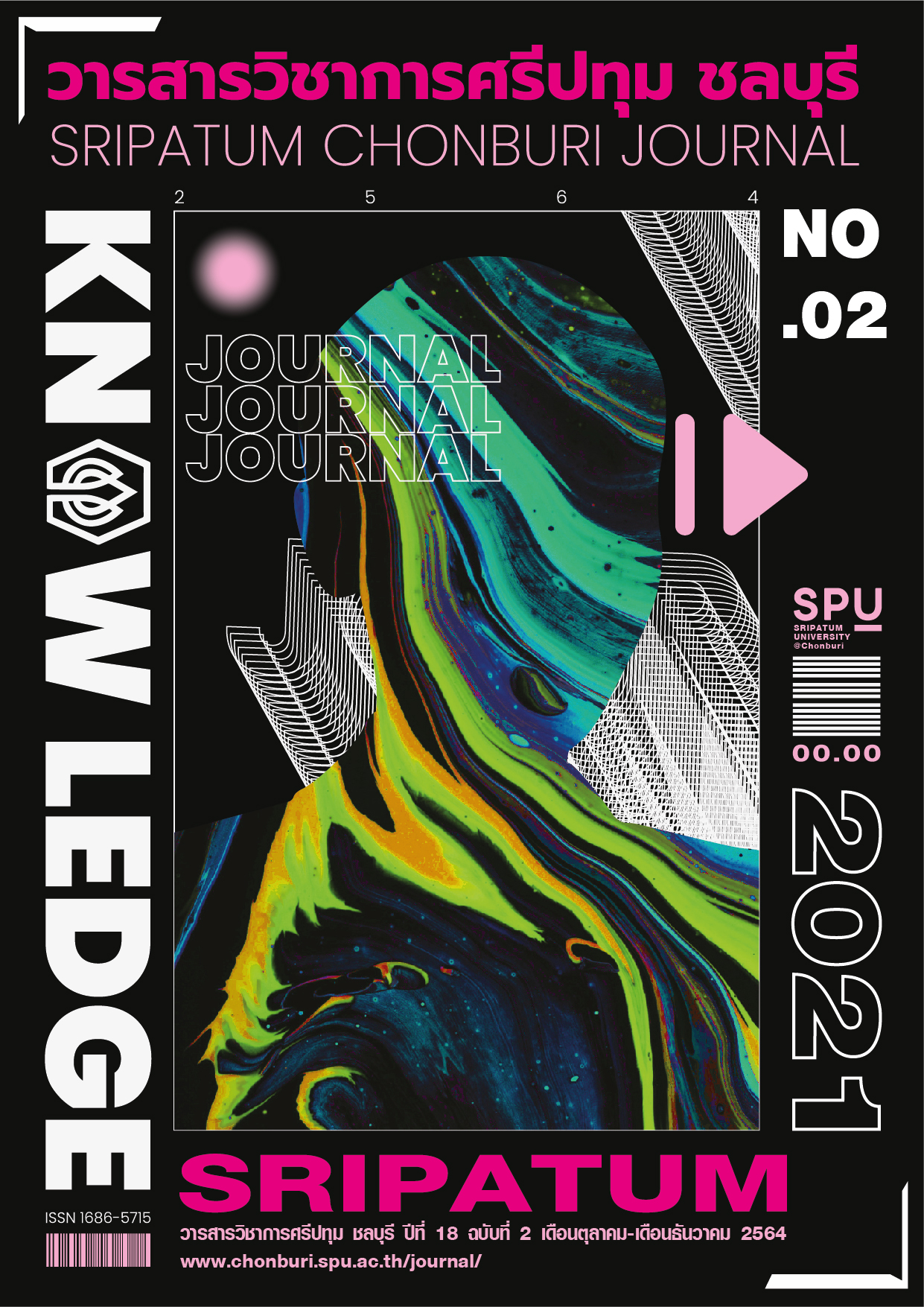FACTORS AFFECTING THE QUALITY OF LIFE OF ELDERLY CAREGIVERS
Keywords:
quality of life, elderly caregiversAbstract
This research is a descriptive research. The objectives were to compare the quality of life of the elderly caregivers with family characteristics, position of care and personal factors of caregivers such as age, education level and income were different and to determine the predictive power of quality of life of elderly caregivers according to variables, stress, family relationships, self-esteem, religious doctrines based on mental, internal-external locus of control, attitude towards the elderly, attitude towards caring for the elderly, knowledge and understanding of elderly care and mental health with predictive equations. The sample was 200 elderly caregivers from 10 communities in Sathorn area. Derived from the specific criteria that must be shared with an elderly person who may be a relative or from hiring and willing to be a sample group. There were 11 tools in total: 1) Stress and Mental Health Scale of the Department of Mental Health, 2) Quality of Life (WHO), and 3) The research team created 8 sets, namely family relationship, self-esteem, religious doctrines based on mental, internal-external locus of control, attitude towards the elderly, attitude towards caring for the elderly and knowledge and understanding of elderly care. Quality of all tools except sets 1 and 2 were found because they were already standardized. All tools except a set of knowledge and understanding of elderly care were a questionnaire on a 5-level scale which find out the quality of the tool is content validity, and got the IOC = .67. Determine the correlation between individual scores and total scores. Choose an item that has a correlation. *p<.05 to find the whole confidence value, Cronbach's alpha coefficient was obtained as follows: family relationship = .845, self-esteem = .896, religious doctrines based on mental = .810, internal-external locus of control= .813; attitude towards the elderly = .868 and attitude towards caring for the elderly = .946. As for the questionnaire on the knowledge and understanding of elderly care, the determination of discrimination to classify each item by comparing the proportion of the high score group and the proportion of the low score group. Choose a value between .33 and 1.00 and find reliability by using Kuder-Richardson 20 (KR 20) = .98. The results showed that:
- Elderly caregivers who have single family, the quality of life was better than caregivers of the elderly with extended family characteristics with statistical significance at the .01 level, there was no difference in quality of life of kinship and employment.
- The variables that predicted the quality of life of the elderly caregivers were internal-external locus of control, stress, family relationships, religious doctrines based on mental and mental health. Predictive equation (raw score) Y = 196.10 -.97 internal-external locus of control -.60 stress -.65 family relationships +.42 religious doctrines based on mental -.34 mental health. Predictive equation (standard score) Y/ = -.35 internal-external locus of control/ -.35 stress/ -.22 family relationship/ +.19 religious doctrines based on mental/ -.12 mental health.
References
กับคุณภาพชีวิตของญาติผู้ดูแลที่ดูแลผู้สูงอายุโรคหลอดเลือดสมอง. วารสารสภาการพยาบาล, 32(2), หน้า 65-78.
พัณณิน กิติพราภรณ์. (2531). คุณภาพชีวิตการทำงานของพนักงานระดับกลาง: กรณีศึกษา โรงงานอุตสาหกรรมเวลโกรว์ จังหวัดฉะเชิงเทรา. วิทยานิพนธ์ศิลปศาสตร
มหาบัณฑิต สาขาวิชาการพัฒนาสังคม, บัณฑิตวิทยาลัย สถาบันบัณฑิตพัฒนบริหารศาสตร์.
รินทร์ เกรย์ และสาลินี เทพสุวรรณ์. (2557). ปัจจัยที่ส่งผลต่อความเครียดของผู้ดูแลผู้สูงอายุ. วารสารสงขลานครินทร์ ฉบับสังคมศาสตร์และมนุษยศาสตร์,
20(1), หน้า 203-228.
สามารถ ใจเตี้ย. (2562). การเสริมสร้างสุขภาพสังคมผู้สูงอายุในยุคไทยแลนด์ 4.0. วารสารวิชาการสาธารณสุข, 28 (ฉบับเพิ่มเติม 2), หน้า s185-s194.
สำนักงานปลัดกระทรวงการพัฒนาสังคมและความมั่นคงของมนุษย์. (2557). สถานการณ์และแนวโน้มสังคมผู้สูงอายุไทย พ.ศ. 2556-2573. กรุงเทพฯ:
ศูนย์เทคโนโลยีสารสนเทศและการสื่อสาร.
สุวิมลรัตน์ รอบรู้เจน. (2560). ปัจจัยทำนายพฤติกรรมการดูแลสุขภาพผู้สูงอายุของผู้ดูแลผู้สูงอายุ อำเภอวารินชำราบ จังหวัดอุบลราชธานี. วารสารมหาวิทยาลัย
นราธิวาสราชนครินทร์, 9(3), หน้า 57-69.
Arango-Lasprilla, Juan Carlos, et al. (2010). Family needs and psychosocial functioning of caregivers of individuals with spinal cord injury from
Colombia, South America. NeuroRehabilitation, 27(1), pp. 83-93.
Morimoto, Tomoko, Schreiner, Andrea S., & Asano, Hitoshi. (2003). Caregiver burden and health-related quality of life among Japanese stroke
caregivers. Age and Ageing, 32(2), pp. 218-223.
Wilborn-Lee, Betty. (2015). The effects of stress and burden on caregivers of individuals with a chronic illness (Online). Available:
https://scholarworks. waldenu.edu/dissertations/1469 [2020, July 1].
Downloads
Published
Issue
Section
License
บทความทุกบทความเป็นลิขสิทธิ์ของวารสารวิชาการศรีปทุม ชลบุรี



